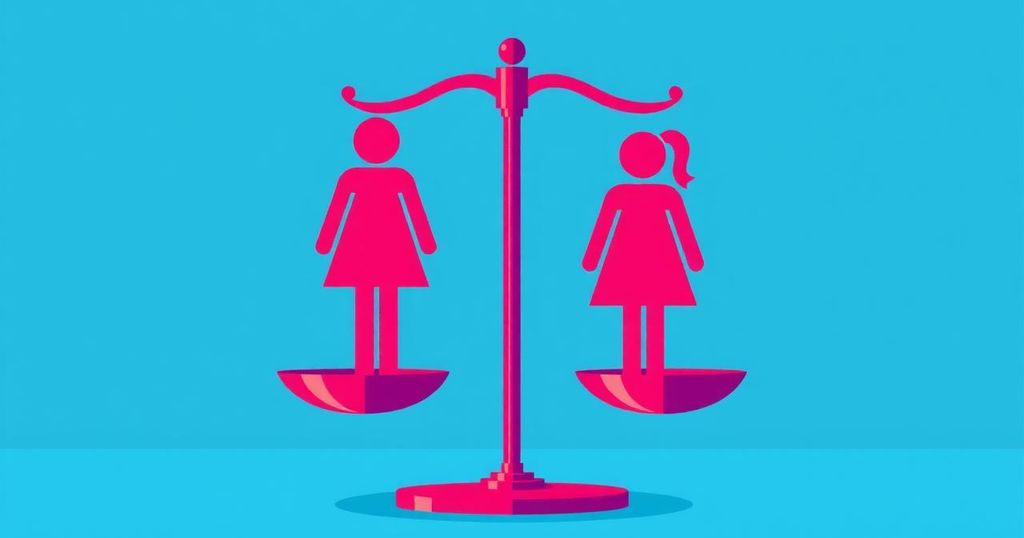Nigerian Senate Sexism Row Highlights Ongoing Challenges for Women’s Rights
Senator Natasha Akpoti-Uduaghan’s suspension after alleging harassment highlights persistent sexism in Nigerian politics. With stark underrepresentation of women in the Senate and House, advocates stress the need for greater support and structural changes to empower women. Responses to Akpoti-Uduaghan’s situation reveal a complicated landscape of solidarity amid deep-seated gender biases.
The recent suspension of Nigerian Senator Natasha Akpoti-Uduaghan following her allegations of sexual harassment against Senate President Godswill Akpabio has ignited significant criticism from women’s groups and women politicians. This incident highlights the ongoing difficulties women encounter in Nigeria, where the representation of women in politics is starkly low, with only 17 women in the House of Representatives and three in the Senate after Akpoti-Uduaghan’s suspension.
Advocates assert that the treatment of female politicians, as seen in Akpoti-Uduaghan’s situation, has damaging effects on women’s confidence across the nation. Eniola Edun-Ogunlana, founder of the EME Foundation, emphasized the importance of restoring this confidence to empower future generations of women and girls facing similar challenges in rural areas.
The dispute began when Akpoti-Uduaghan accused Akpabio of making inappropriate advances during a local interview. She stated that Akpabio suggested that support for her pending motion could be contingent upon her granting him “favours”. Shortly after making these claims, she was suspended for six months, although the Senate’s majority leader attributed the suspension to alleged “gross misconduct.”
While Akpoti-Uduaghan received support from some, notably Edun-Ogunlana and various women’s groups in Abuja, her claims were met with mixed reactions, including from prominent women like Senator Oluremi Tinubu. Tinubu, a member of Akpabio’s party, chose not to advocate for Akpoti-Uduaghan, suggesting that the Senate was managing the situation appropriately.
The lack of gender quotas in Nigeria’s National Assembly further complicates the issue of women’s representation. Many female politicians hail from influential families, reinforcing stereotypes that question women’s qualifications for public office, a concern articulated by political science professor Akinsola Alaba Agagu. The pervasive sexism within the Senate is echoed by former employees, who reported feeling disrespected and sidelined in discussions and meetings.
The resignation of female staff members due to continuous experiences of sexism underscores the challenging environment for women in Nigerian politics. Issues of age and marital status also elevate the biases encountered by female officials, creating a landscape that favors older, often married women in their political careers.
The suspension of Senator Natasha Akpoti-Uduaghan has brought attention to the systemic sexism that pervades the Nigerian Senate, shining a light on the broader struggles for women’s rights in the country. Despite support from advocacy groups, the prevailing attitudes among some women politicians reflect deep-rooted societal challenges. The lack of gender quotas and representation reinforces stereotypes that undermine women’s qualifications in politics. Addressing these issues requires significant cultural shift and policy change to ensure future generations of women are empowered and respected in leadership roles.
Original Source: www.hindustantimes.com




Post Comment